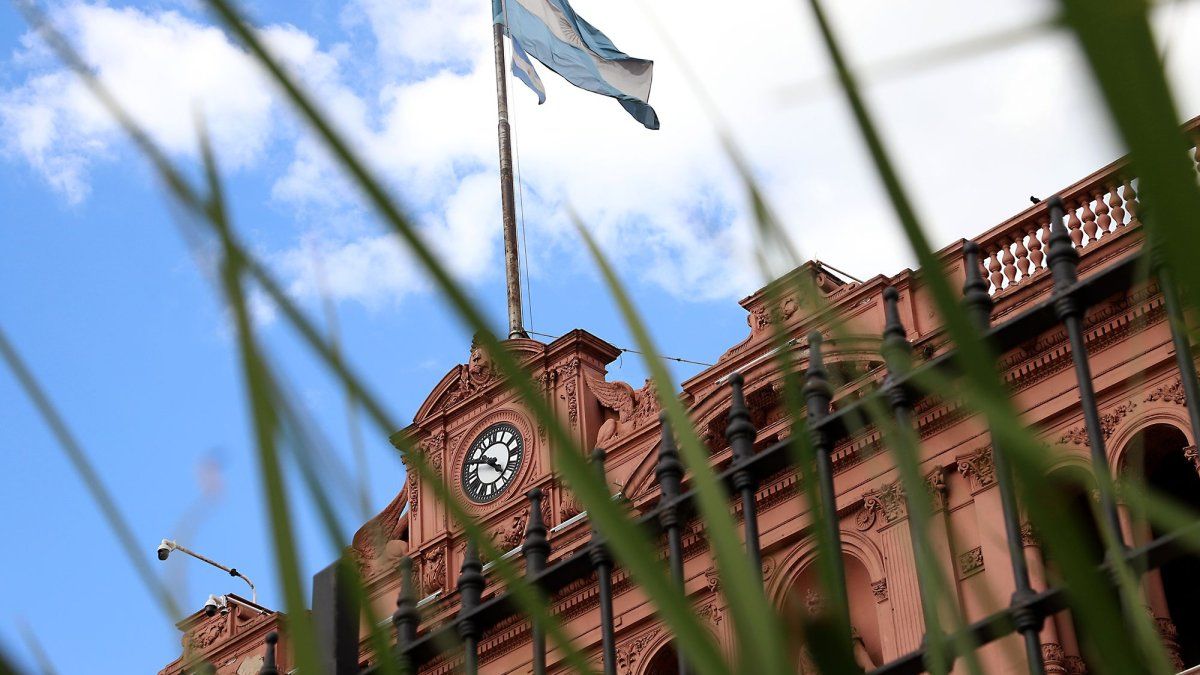Juan Jose Bahillo He is the Secretary of Agriculture, Livestock and Fisheries. The man from Entre Ríos arrived in August 2022, when Sergio MassaHe landed at the Ministry of Economy and began to designate his team. During the week she leads the agricultural policy, crossed by “the worst drought in the history of our country,” as she defines it. On Saturday mornings, on the other hand, she looks for time to devote to the tambo that she owns in Gualeguaychú, between routes 14 and 20.
“Did you do the mate how do you always do it?” asked one of the minister’s assistants, connected by zoom, with the internet signal that characterizes areas far from the nerve centers. “With the firewood and the old kettle, well burned,” he replied. From Entre Ríos, Bahillo spoke with Ámbito about the importance of incorporation of Argentina to the BRICS, clarified that it will not immediately translate into the expansion of commercial relations but that it generates new opportunities. He also responded to the proposal to eliminate the role of the State and limit the commercial link to the private sector. “We are highly respected and in demand, but due to political speculation, personal frustrations, self-fulfilling prophecies or forecasters of misfortunes, our productive capacities are questioned and our producers are not valued,” he stated.
Q: Will its insertion bring about the strengthening of trade relations with the countries that make up the BRICS?
JJB: The entry does not necessarily imply a commercial strengthening, but it is understood as a political rapprochement, which allows the generation of new trade opportunities. In this alliance are Brazil, China and India, which are the main destinations of our markets, in addition to the European Union. Of the four most important destinations, three are part of the BRICS. We have a shared perspective on the challenges ahead and what the world needs for these times, which is why this decision increases our political position.
Q.: In this sense, could it be deduced that Argentina is paving the way to expand its business and position itself, over time, as one of the main suppliers of its strategic resources?
JJB: You have to be serious and responsible with the definitions. The insertion of Argentina does not generate an automatic transfer to greater commercial exchange, but it does produce a greater link with the countries, because commercial exchanges are also accompanied by political gestures.
Q.: Are these gestures intrinsically necessary to relate to other countries in commercial terms, or can trade be limited to the relationship between private individuals, as Javier Milei suggests?
JJB: In foreign trade there are no relationships that are strictly between private parties. In our sector, for example, if the health authorities of both countries do not intervene to recognize the health status of what is marketed, there is no commercial agreement possible. For example, if there was no agreement between SENASA and the General Administration of Customs of the People’s Republic of China, Argentina would not be able to enter food into China. Not having contact from the institutional is to interrupt the commercial flow, regardless of the agreements that the private sector wants to make.
Q.: What is the weight of exports to the three BRICS countries with which Argentina trades the most (Brazil, China and India)?
JJB: Very significant. 75% of exported beef is destined for China, the same with poultry meat, by 60%. For Argentina, Brazil represents the third destination for wheat exports. Between China and Brazil, around US$28 billion of exports are generated. If we interrupt trade with those two countries, we will have a greater damage than the drought, in terms of volume of exports and foreign exchange earnings.
Q.: However, the counterpoint of the opposition that would explain the break in commercial ties has to do with the ideological incompatibility with the countries that make up the BRICS. Is it possible, under the current multipolar logic, to think about trade from this place?
JJB: Unless there is a specific circumstance, relations are governed by commercial pragmatism. That explains why the exchange between the United States and China is one of the most important in the world. In addition, just interrupting exports to China puts around 100,000 jobs at risk, linked to the beef and poultry sector. Not only is it less dollar income, it would also trigger significant unemployment in the country.
Q.: It would also mark a disincentive to the search for de-dollarization, indirectly raised with this type of agreement.
JJB: Yuan is already being traded, not just dollars, based on the agreement between the two countries signed by Massa and which began to take shape specifically in June.
Q.: What other types of markets is Argentina looking at?
JJB: We are always looking at new markets. Mexico for the wine sector, the United States for citrus, nuts to China, pork and bovine offal to Japan, the entry of meat to Korea, among others. The development and growth of the agri-food value chain must be accompanied by the export sector, we must leave the logic of the internal market versus the external market. In addition, we are advancing with the direct sowing system, with biotechnology, industry and the necessary machinery. The food agenda is one of permanent renewal, but the respect that the world has for us when it comes to recognizing us as producers of food of quantity, quality and safety is not valued. We are highly respected and in demand, but due to political speculation, personal frustrations, self-fulfilling prophecies or forecasters of misfortunes, our productive capacities are questioned and our producers are not valued.
Q: The relationship with the producers went through ups and downs, in the complex framework offered by the drought and the current consequences. What is the balance of the link with the sector?
JJB: It’s good, but that doesn’t mean there haven’t been tensions and differences, critical situations. We come from experiencing the worst drought in the history of our country. The main affected was the producer and that is why he gets angry, frustrated, because he sees that the effort of two years is not embodied in economic results. From the State we generated tools, we declared the Agricultural Emergency Law, we gave credits. It was an investment of more than US$200 million; It may be debatable, but I assure you that it was not little. It may be that we have not reached a producer and they feel that the State did not accompany them, we are not infallible, but we applied many measures and we maintained closeness with the sector. There were no indeterminate strikes or lockouts, and that speaks of the responsibility of the producers and union entities.
Q.: Is the worst moment of the drought over? What are the expectations ahead?
JJB: Expectations are the best. We have already recovered the area planted to wheat, for which we can estimate that we will be at more than 18 million tons, and the expectation for soybeans and corn is very good because the weather forecasts have improved for the coarse crop. We are going to have very good numbers next year.
Source: Ambito




